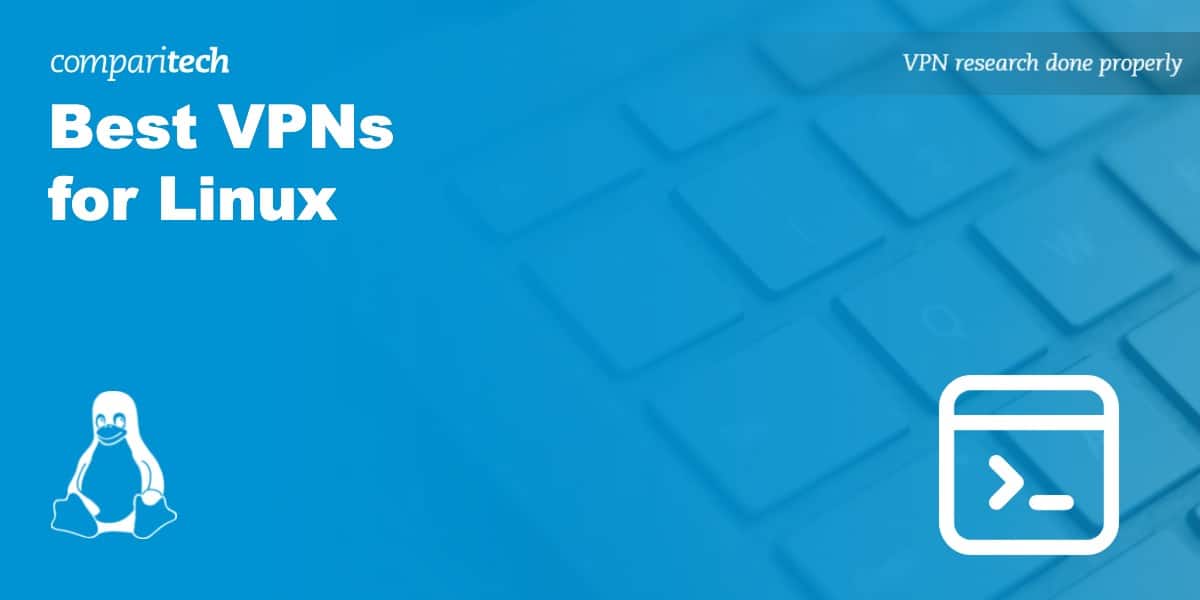Finding the best VPN for Linux can be tricky. With so many options, making the right choice is important.
Linux users often seek reliable security and privacy tools. A VPN is a key tool in that regard. Not all VPNs work well on Linux, so choosing the right one is vital. In this blog, we explore top VPNs for Linux.
These options enhance your privacy and security. Whether you’re a Linux newbie or a seasoned user, this guide will help you find the best VPN for your needs. Let’s dive in and find the best VPN for your Linux system.

Credit: cyberinsider.com
Overviews of Contents
ToggleIntroduction To Vpns On Linux
Linux users often prioritize security and privacy. A Virtual Private Network (VPN) is vital for these needs. It ensures your internet activities stay private and secure. This blog post will introduce the importance of VPNs and explain why you should use a VPN on Linux.
Importance Of Vpns
A VPN, or Virtual Private Network, creates a secure tunnel between your device and the internet. It hides your IP address and encrypts your online traffic. This ensures your data is safe from hackers and prying eyes.
- Security: Protects your data from hackers.
- Privacy: Keeps your online activities hidden.
- Access: Allows you to access restricted content.
For example, when using public Wi-Fi, a VPN can protect your sensitive information. It also helps you access content that might be geo-blocked in your region.
Curious about VPN? We've got more info in this linked article. The Best Free VPNs for Torrenting: Secure and Fast Options
Why Use Vpn On Linux
Linux is known for its robust security features. But using a VPN on Linux adds an extra layer of protection. Here’s why you should use a VPN on Linux:
- Enhanced Security: Linux is secure, but a VPN makes it even safer.
- Bypass Geo-Restrictions: Access content from different regions.
- Privacy Protection: Keep your online activities private.
Many Linux users work with sensitive data. A VPN ensures this data remains secure and private. It also helps avoid ISP throttling, ensuring a faster internet connection.
| Feature | Linux without VPN | Linux with VPN |
|---|---|---|
| Security | High | Very High |
| Privacy | Moderate | High |
| Access to Content | Restricted | Unrestricted |
Using a VPN on Linux is not just for tech experts. It is easy and beneficial for all users. It ensures your data stays private and secure while giving you access to a global internet.
Top Vpn Features
Choosing the best VPN for Linux involves understanding the key features that make a VPN service reliable and efficient. Here are some crucial aspects to consider:
Security Protocols
A VPN’s security protocols are essential for protecting your data. Most VPNs offer multiple protocols, but the best ones include:
- OpenVPN: Known for its balance of speed and security.
- WireGuard: Offers faster speeds and modern encryption.
- IKEv2/IPSec: Excellent for mobile users due to its ability to reconnect quickly.
Ensure your VPN uses strong encryption, like AES-256, to keep your data safe.
Curious about VPN? We've got more info in this linked article. Best Vpn for Japan: Unlock Fast, Secure, and Private Browsing
Speed And Performance
Speed is a crucial factor for a good VPN experience. A VPN should offer high-speed servers, so you can stream and browse without interruptions. Key points to consider:
- Look for VPNs with multiple server locations worldwide.
- Choose a VPN with a no-logs policy to ensure privacy.
- Check for unlimited bandwidth to avoid throttling.
Speed tests can help determine the best VPNs for fast connections.
Choosing A Vpn For Linux
Choosing a VPN for Linux can be a bit challenging. There are many options available, and not all VPNs work well with Linux. It’s important to select a VPN that offers good compatibility and ease of use. Below, we will discuss some key factors to consider.
Compatibility
Not all VPNs are compatible with Linux. Ensuring compatibility is the first step. Look for VPNs that offer dedicated Linux apps or detailed setup guides. Many top VPNs provide support for popular Linux distributions like Ubuntu, Debian, and Fedora.
Here is a table that shows some VPNs and their compatibility with Linux distributions:
| VPN | Ubuntu | Debian | Fedora |
|---|---|---|---|
| ExpressVPN | Yes | Yes | Yes |
| NordVPN | Yes | Yes | Yes |
| CyberGhost | Yes | Yes | Yes |
Ease Of Use
Ease of use is another essential factor. Using a VPN should not be complex. Look for VPNs that offer a user-friendly interface. A command-line interface is common on Linux, but some VPNs offer graphical user interfaces (GUIs).
Here are some features that make a VPN easy to use:
- Simple installation process
- Clear setup instructions
- Reliable customer support
- Automatic updates
NordVPN and ExpressVPN are known for their easy setup and use on Linux. They provide detailed guides and have responsive support teams.
Looking for more insights on VPN? You may find this post valuable. Private Internet Access Vs Surfshark: Ultimate VPN Comparison
Setting Up A Vpn On Linux
Setting up a VPN on Linux can greatly enhance your online privacy and security. Linux users often seek reliable VPN solutions to protect their data. In this section, we will guide you through the steps needed to install and configure a VPN on your Linux system.
Installation Steps
The first step to setting up a VPN on Linux is installation. Follow these steps to install a VPN on your Linux system:
- Open the terminal on your Linux machine.
- Update your package list with the command:
sudo apt-get update - Install the VPN client software. For example, to install OpenVPN, use:
sudo apt-get install openvpn - Download the configuration files from your VPN provider.
- Move the downloaded files to the OpenVPN directory:
sudo cp /path/to/downloaded/files/ /etc/openvpn/
Configuration Tips
Configuring your VPN properly ensures maximum security and performance. Here are some tips:
- Ensure your configuration files are in the correct directory:
/etc/openvpn/ - Edit the configuration file to include your VPN credentials. Open the file in a text editor:
sudo nano /etc/openvpn/client.conf - Add your VPN username and password. Save and close the file.
- Start the VPN service using:
sudo systemctl start openvpn@client - Enable the VPN service to start on boot:
sudo systemctl enable openvpn@client
Following these steps will help you set up a VPN on Linux effectively. Enjoy secure and private browsing on your Linux system.
Looking for more insights on VPN? You may find this post valuable. Nordvpn Vs Expressvpn: Which VPN Reigns Supreme in 2025?
Best Vpns For Linux
Finding the best VPN for Linux can be challenging. Many VPNs support Windows and Mac but lack Linux features. The right VPN ensures privacy, security, and speed. Below, we explore top VPN options for Linux users.
Nordvpn
NordVPN is a leading choice for Linux users. It offers a dedicated Linux app and strong security features.
- Server Locations: Over 5,400 servers in 59 countries.
- Encryption: Uses AES-256 encryption for top-notch security.
- Privacy: No-logs policy ensures your activities remain private.
NordVPN supports various Linux distributions like Ubuntu, Debian, and Fedora. Installation is straightforward, and the command-line interface is easy to use. NordVPN also provides excellent customer support, available 24/7.
Expressvpn
ExpressVPN is known for its speed and reliability. It offers a dedicated app for Linux and supports a wide range of distributions.
- Server Network: 3,000+ servers in 94 countries.
- Security: AES-256 encryption and TrustedServer technology.
- Privacy: Strict no-logs policy to protect user data.
ExpressVPN’s Linux app is user-friendly with simple setup steps. It provides excellent speed, making it ideal for streaming and browsing. The 24/7 customer support is also a big plus for users needing assistance.
| VPN | Servers | Countries | Encryption | No-Logs Policy |
|---|---|---|---|---|
| NordVPN | 5,400+ | 59 | AES-256 | Yes |
| ExpressVPN | 3,000+ | 94 | AES-256 | Yes |

Credit: www.comparitech.com
Free Vs Paid Vpns
Choosing between a free and a paid VPN on Linux can be confusing. Each has its own advantages and disadvantages. The right choice depends on your needs and preferences.
Pros And Cons
| Free VPNs | Paid VPNs |
|---|---|
|
|
Which Is Better?
If you need basic protection, a free VPN might suffice. It saves money but comes with limitations. For better speed, security, and features, a paid VPN is ideal. It offers more servers and a better user experience.
When choosing a VPN on Linux, consider your needs. If privacy and speed are priorities, a paid VPN is better. If budget is a concern, start with a free VPN. Always read reviews and compare features before making a decision.
Troubleshooting Vpn Issues
Linux users often face VPN issues. Choosing the best VPN for Linux can simplify troubleshooting. Ensure compatibility and proper installation for a smoother experience.
Using a VPN on Linux offers better privacy and security. But sometimes, you might face issues. Don’t worry. Many users experience similar problems.Common Problems
Connection drops are frequent. Your VPN might disconnect without warning. Slow speeds can also be an issue. Some users report very slow internet. Another common problem is DNS leaks. This can expose your online activity.Quick Fixes
First, check your internet connection. Make sure your internet is working fine. Restart your computer. Sometimes, a simple restart can solve many issues. Update your VPN software. Outdated versions can cause problems. Change your server. Some servers might be overloaded. Switch to a different one. Check your firewall settings. Sometimes, firewalls block VPN connections. Configure your DNS settings. Use public DNS services like Google DNS. This can fix DNS leaks. If all else fails, contact your VPN support team. They can provide specific solutions. By following these steps, you can fix most VPN issues on Linux. “`Advanced Vpn Tips
Advanced VPN tips can greatly enhance your experience on Linux. These tips focus on optimizing speed and enhancing security. Let’s dive into some advanced strategies.
Optimizing Speed
Speed is crucial for a seamless VPN experience. Start by choosing a server close to your location. This reduces latency and boosts connection speed. Another trick is to switch between different VPN protocols. Some protocols offer better speed without compromising security. Avoid using public Wi-Fi networks if possible. They can slow down your connection.
Regularly updating your VPN software is also essential. Updates often include performance improvements. Lastly, consider using a wired connection instead of Wi-Fi. Wired connections generally provide more stable and faster internet speeds.
Enhancing Security
Security is a top priority when using a VPN on Linux. Always use a strong, unique password for your VPN account. Enable multi-factor authentication (MFA) if available. This adds an extra layer of security. Choose a VPN that offers a kill switch feature. This ensures your data is not exposed if the VPN connection drops.
Be cautious about the permissions you grant to apps. Some apps may request unnecessary access to your data. Regularly update your Linux system and VPN software. Updates often include security patches. Avoid free VPN services. They may not provide adequate security measures and could compromise your privacy.

Credit: www.01net.com
Frequently Asked Questions
What Is The Best Vpn For Linux?
ExpressVPN is highly recommended. It offers strong security, speed, and easy setup on Linux.
How Do I Install A Vpn On Linux?
Download the VPN client from the provider’s website. Follow their Linux installation guide.
Can I Use A Free Vpn On Linux?
Yes, but free VPNs often have limited speeds, data, and security features. Paid options are better.
Why Use A Vpn On Linux?
A VPN enhances privacy and security. It hides your IP address and encrypts your internet connection.
Conclusion
Choosing the best VPN for Linux ensures privacy and security online. It also provides access to restricted content. A reliable VPN enhances your browsing experience. Look for features like speed, ease of use, and strong encryption. Ensure the VPN supports your Linux distribution.
This will guarantee smooth performance. Remember, a good VPN is an investment in your digital safety. So, take the time to pick the right one. Enjoy a safer, more private internet experience with the best VPN for Linux.




